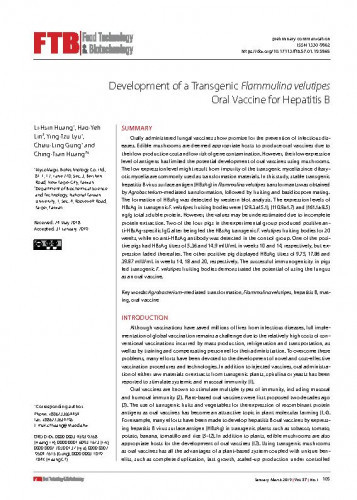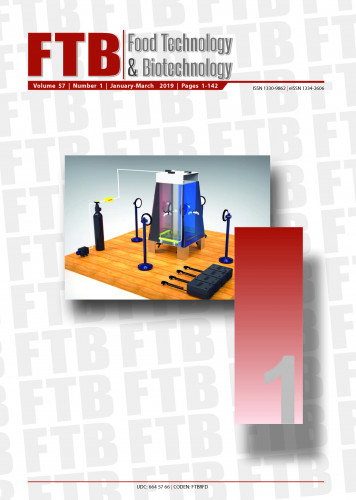Orally administered fungal vaccines show promise for the prevention of infectious diseases. Edible mushrooms are deemed appropriate hosts to produce oral vaccines due to their low production cost and low risk of gene contamination. However, their low expression level of antigens has limited the potential development of oral vaccines using mushrooms. The low expression level might result from impurity of the transgenic mycelia since dikaryotic mycelia are commonly used as transformation materials. In this study, stable transgenic hepatitis B virus surface antigen (HBsAg) in Flammulina velutipes transformants was obtained by Agrobacterium-mediated transformation, followed by fruiting and basidiospore mating. The formation of HBsAg was detected by western blot analysis. The expression levels of HBsAg in transgenic F. velutipes fruiting bodies were (129.3±15.1), (110.9±1.7) and (161.1±8.5) ng/g total soluble protein. However, the values may be underestimated due to incomplete protein extraction. Two of the four pigs in the experimental group produced positive anti-HBsAg-specific IgG after being fed the HBsAg transgenic F. velutipes fruiting bodies for 20 weeks, while no anti-HBsAg antibody was detected in the control group. One of the positive pigs had HBsAg titres of 5.36 and 14.9 mIU/mL in weeks 10 and 14, respectively, but expression faded thereafter. The other positive pig displayed HBsAg titres of 9.75, 17.86 and 39.87 mIU/mL in weeks 14, 18 and 20, respectively. The successful immunogenicity in pigs fed transgenic F. velutipes fruiting bodies demonstrated the potential of using the fungus as an oral vaccine.; Oralna primjena cjepiva dobivenih iz gljiva obećavajuća je za prevenciju zaraznih bolesti. Jestive gljive smatraju se prikladnim domaćinom za proizvodnju cjepiva zbog malih troškova proizvodnje i malog rizika kontaminacije gena. Međutim, zbog slabe ekspresije antitijela gljive imaju limitirani potencijal za razvoj oralnih cjepiva. Niska razina ekspresije gena vjerojatno je posljedica nečistoće transgenih micelija, budući da se za transformaciju uglavnom koriste miceliji dikariona. U radu je transformacijom gena iz gljive Flammulina velutipes pomoću bakterije Agrobacterium dobiven stabilni antigen hepatitisa B (HBsAg). Zatim je uslijedilo formiranje plodišta i klijanje bazidiospora. Metodom Western blot potvrđeno je formiranje HBsAg. Razine ekspresije HBsAg u plodištima gljive F. velutipes bile su: (129,3±15,1), (1 10,9±1,7) i (161,1±8,5) ng po gramu ukupnog topljivog proteina. Međutim, te vrijednosti mogu biti i veće, jer u radu nije postignuta potpuna ekstrakcija proteina.
Sažetak

 Food technology and biotechnology : journal of the Faculty of Food Technology and Biotechnology, University of Zagreb, Zagreb, Croatia : 57,1(2019) / editor-in-chief Vladimir Mrša.
Food technology and biotechnology : journal of the Faculty of Food Technology and Biotechnology, University of Zagreb, Zagreb, Croatia : 57,1(2019) / editor-in-chief Vladimir Mrša.